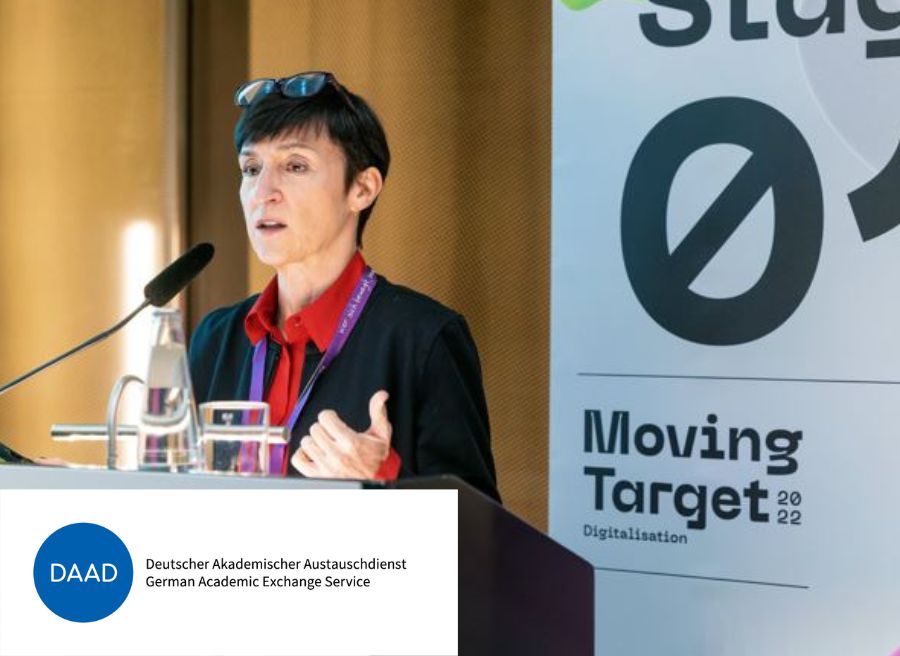
ECE Attends Moving Target Digitalisation 2022 in Berlin
The Moving Target Digitalisation 2022 conference took place from November 30 through December 3, virtually and in-person in Berlin. It was hosted by DAAD, the German Academic Exchange Service, and brought together professionals with diverse perspectives on the digitalization of higher education.
 This was my first time attending this conference, and the sessions, networking, and venue were inspiring. I was brought into conversations with stakeholders I wouldn’t necessarily interact with otherwise and was brought back to a wonderful city I hadn’t visited in over 40 years. (To the right is a photo from my visit to the Brandenburg Gate).
This was my first time attending this conference, and the sessions, networking, and venue were inspiring. I was brought into conversations with stakeholders I wouldn’t necessarily interact with otherwise and was brought back to a wonderful city I hadn’t visited in over 40 years. (To the right is a photo from my visit to the Brandenburg Gate).
There were four tracks: Digital Credentials and Trust Networks in Education, Linking Digital Education Services, Virtual Exchange and Blended Mobility, and European Strategies for Digital Education. Many of the presenters described technologies and processes by which institutions in Europe provide ways for learners and professors to register, study, learn, teach, and collaborate remotely.
In my presentation “Credential Evaluation and its role in the student data ecosystem,” I was pleased to provide attendees with a window into the world of credential evaluation – our basic principles, processes, and methodologies. In part, I discussed:
- Five reasons why credential evaluations are so important:
- Provides a means for appropriate admissions, licensing, immigration, and hiring decisions.
- Helps to protect the public.
- Helps ensure fairness for all learners, practitioners, and employees.
- Helps mitigate risk for institutions and others by detecting falsified credentials.
- Supports learner mobility.
- Methods and best practices around digital documents, including:
- Confirm sources are authorized to send documents.
- Confirm their method for transmission is secure.
- Develop documentation requirements appropriate to the institution/country.
- Have flexibility in systems and processes to account for differing formats.
- Four key factors to promote learner mobility:
- Trust and transparency are needed; though it’s an ongoing challenge.
- Our continued vigilance so as not to fall into a false sense of security.
- Commit to ongoing cooperation; information sharing to not leave anyone behind.
- Ability to look at the big picture.
Additionally, it was an absolute pleasure to be a co-panelist for the session “Urgent Policy Questions to Advance Flexible and Alternative Learning Pathways” with colleagues representing OECD, Mozilla, the European Commission, and LinkedIn.
While much of the conversation focused on German and broader European initiatives, I was gratified that there were sessions and panels that provided the opportunity to represent the perspective of the global south, and other underrepresented regions. It is vital that new technologies and initiatives include multiple voices and account for varying realities for us to support equity and accessibility in education. I look forward to continuing these discussions and collaborations, both virtually and in-person.
Margaret Wenger has worked at Educational Credential Evaluators, Inc., a non-profit credential evaluation agency located in the US since 1990. She chairs TAICEP’s (The Association for International Credential Evaluation Professionals) sub-committee on Digital Student Data and serves on the board of directors of the Groningen Declaration Network.